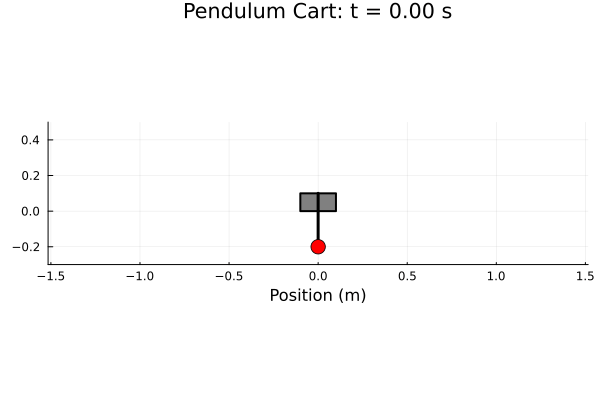We are very happy to work with students and would like to briefly introduce you to the subject areas in which we would particularly appreciate your support. Feel free to drop by with your ideas and concepts and together we will look for ways in which you can complete your final theses, seminar papers, research and project modules with us. We are always available to answer your questions.
Comparison of Optimal Control Toolchains in Julia
Topic for Student Thesis: Comparison of Optimal Control Toolchains in Julia
At the Chair of Mechatronics, we regularly deal with optimal control problems, especially in the context of model predictive control (MPC). For implementing such algorithms, the Julia programming language is of particular interest. Several packages and workflows for solving optimal control problems already exist, including:
- OptimalControl.jl
- ModelPredictiveControl.jl
- NLOptControl.jl
- and other comparable solutions
The goal of this thesis is to provide a systematic overview of existing Julia-based toolchains for solving optimal control and MPC problems. Relevant packages should be identified, analyzed in terms of their structure and workflows, and compared across a set of evaluation criteria.
Potential questions and topics of interest include:
- Development status and community activity
- Comparison of available features
- Suitability for real-time applications
- Compatibility with differential equation solvers (DifferentialEquations.jl)
- Integration with optimization backends (e.g., Optim.jl, Optimisers.jl)
- Support for different model types (e.g., neural networks, FMUs, ModelingToolkit.jl, …)
- Differentiability using various automatic differentiation (AD) backends (ForwardDiff.jl, Zygote.jl, Enzyme.jl,…)
- Comparison with MPC toolboxes in other programming environments (e.g., do-mpc, MATLAB’s Model Predictive Control Toolbox)
- MPC using FMUs via FMI.jl
The scope of the work can be flexibly adapted depending on the type of student project. Specific subtopics such as MPC with FMUs or differentiability of optimal control formulations may also be explored in more depth within a full thesis.
